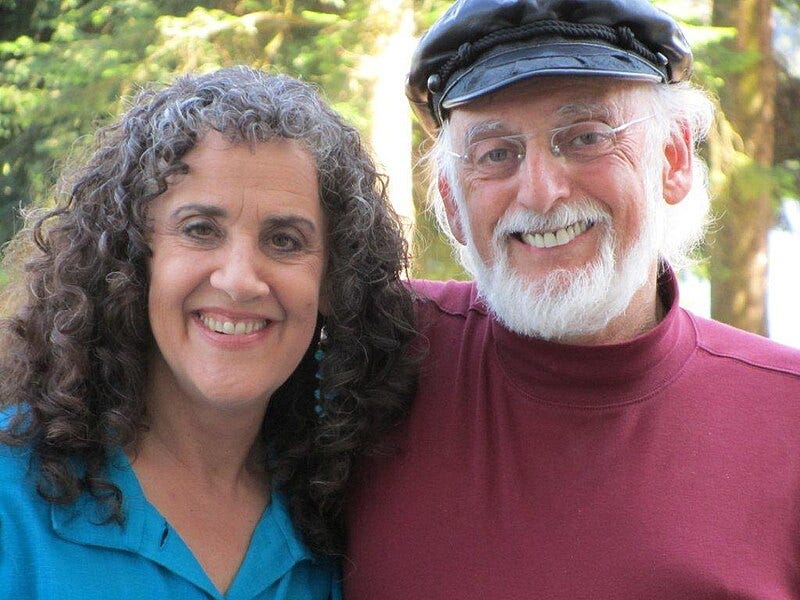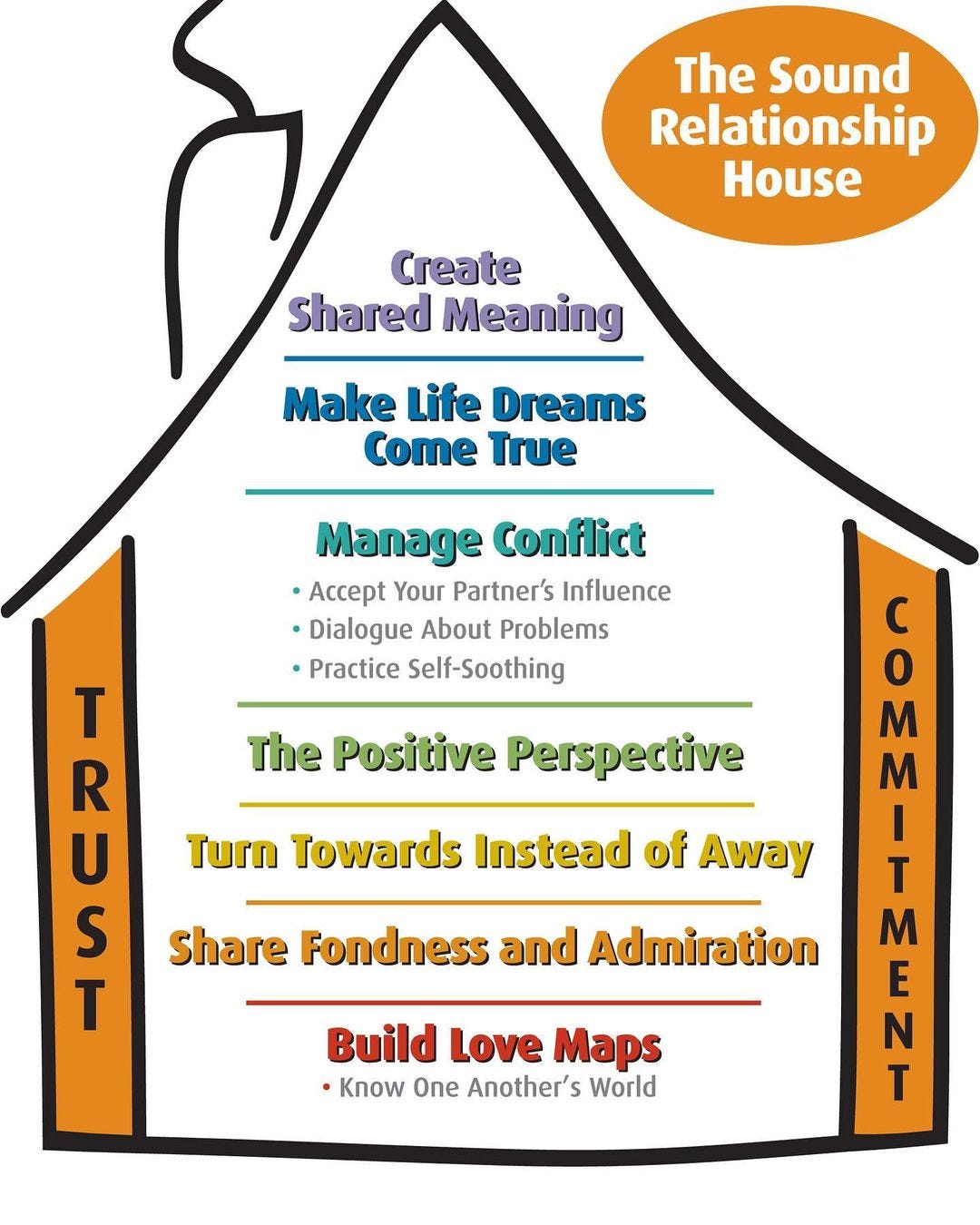The Future— Science
To finish our discussion on love languages, let's stay on this tortured theme of analogies - I've devised a new one for Dr. Chapman. I now think that Dr. Chapman's contribution to our popular framework of love is similar to Sigmund Freud’s contributions to the field of psychology. As Freud popularized the theory of the unconscious mind as a tool for understanding mental illnesses, Chapman popularized love languages as a tool to understand relationships. But at their core, both men made some bad assumptions.
Freud believed that when female children realize they lack a penis, they feel ‘castrated’ in comparison to males. He argued that this realization was a pivotal moment in female sexual development and could contribute to mental illness — I know, kooky. In a similar vane, I believe I’ve exhaustively communicated Chapman’s mistakes, sometimes just as hilariously. I think they share this fundamental issue because they did not use the scientific method when developing their theory. The Gottman’s on the other hand did.

The Gottmans, Drs. John and Julie Gottman, are renowned experts in the field of relationship psychology. Dr. John Gottman is a professor emeritus in psychology and has spent over four decades researching relationships and marriage. His research has identified key behaviors and patterns that contribute to the success or failure of relationships. He has experience with the latter, himself being married twice in the past. His current wife of the past 35+ years, Dr. Julie Schwartz Gottman, is a clinical psychologist and has an extensive background in clinical work and is recognized for her expertise in marriage, sexual harassment and rape, and domestic violence. Together they co-founded The Gottman Institute. A research facility dedicated to studying couples and their interactions in a scientifically controlled environment.
Gottman Method Couples Therapy (GMCT) was developed through three phases: discovering interaction patterns that differentiate happy from unhappy couples, replicating findings to predict relationship satisfaction changes, and building theories to create empirically tested interventions. Among the validation steps, extensive longitudinal studies across various life stages (newlyweds, transitioning to parenthood, older couples, and same-sex couples) supported these developments. The first PhD thesis I found on the Gottman Method Couples Therapy (GMCT) was a randomized control trial that examined the effectiveness in aiding couples recovery after an affair—It was proven effective. Unlike Chapman’s work, Gottman had been stress-tested from its inception, In addition, its less ambiguous benefits have been found to work in person and offline in countries from the US to Iran. Their work is so credentialled it is included in the Clinical Handbook of Couple Therapy (Chapter 16).
John Gottman has published over 200 research publications but to communicate their findings to the public, they have shared 2 frameworks that have had great transformative and predictive power for couples’ relationships.
First, we have the Sound Relationship House. The concept was explained in John Gotmans 2015 book "The Seven Principles for Making Marriage Work" to describe the essential components of a strong, healthy relationship. This model consists of seven floors and two weight-bearing walls:
Build Love Maps: Knowing your partner's inner world, including likes, dislikes, and personal history.
Share Fondness and Admiration: Expressing appreciation for your partner's qualities and actions.
Turn Towards: Responding positively to your partner's bids for attention, support, and comfort.
The Positive Perspective: Maintaining an optimistic view of your partner and the relationship.
Manage Conflict: Accepting influence, dialoguing about problems, and practicing self-soothing during arguments.
Make Life Dreams Come True: Supporting and helping each other achieve personal goals.
Create Shared Meaning: Develop a couple's culture with shared symbols, rituals, and connections.
The two weight-bearing walls that support these floors are Trust and Commitment. These pillars represent the faith partners have in each other and their dedication to the relationship. Despite being only slightly more complex than Chapman’s Theory, this methodology captures more of the complexity of relationships. On top of that, it’s flexible enough to recommend actions for you to do while not boxing you into a category. The Savvy among you can probably tell that Chapman’s framework of love languages seems roughly analogous to the ground level of the house. Although instead of boxing you into categories it asks you to figure it out yourself.

In addition, unlike Chapman’s singular thesis of surrounding love tanks, the Gottmans outline the 4 horsemen of the relationship. Common destructive communication behaviors that predict relationship breakdowns:
Criticism: attacks on a partner's character, leading to feelings of rejection and hurt, paving the way for further negative behaviors.
Contempt: behavior includes disrespect, mocking, sarcasm, and name-calling, assuming moral superiority. It is the greatest predictor of divorce
Defensiveness: involves making excuses and playing the victim, which escalates conflicts and shifts blame back to the partner, preventing healthy conflict resolution.
Stonewalling: occurs when one partner withdraws emotionally and physically from the interaction due to feeling overwhelmed, becoming a habitual escape from conflict.
Below they share good ways to combat these behaviors.

They have published books and presented their ideas on these and other findings to numerous audiences. They have been making rounds online for over the past 10 years and have gone viral in various podcasts, and TED talks in recent years. I think their work is ultimately where the future of love languages ends up. Not in the elimination of love languages but in its subsumption into Gottman’s more generalized framework. And because his method is science-based it too can be disproven and iteratively worked upon in the future. Maybe a future “X-man” will create a system that surpasses both Chapman’s and Gottman’s frameworks.
Future— Me
As I go back into the world armed with this knowledge I know I will inevitably get asked again “What is your love language?”. I don’t plan on shouting others down or dogmatically trying to convince them that their ideology is flawed. In the spirit of what I’ve learned from writing this article, I intend to approach them with attentiveness and empathy, telling them "all of them and more" and see where the conversation takes us.
Thanks for reading Thinkinganddata’s Substack! Subscribe for free to receive new posts and support my work.
Follow me on @thinkinganddata on all platforms including:
Substack | Medium | Instagram | Threads | X(Twitter)
Sources/Additional Reading:
Videos:
The Gottman Institute. (2017, June 27). The Four Horsemen: Criticism, Contempt, Defensiveness, and Stonewalling [Video]. YouTube.
Gottman, J. (2018, Oct 2). The Science of Love|TEDxVeniceBeach [Video]. YouTube.
Books and Articles:
Rashid, T., & Osterman, R. (2022). Positive psychotherapy: Clinician’s guide to positive psychology in practice (2nd ed.). Wiley. https://books.google.com/books?hl=en&lr=&id=mLZ5EAAAQBAJ&oi=fnd&pg=PA362
Gottman, J., & Gottman, J. S. (2022, September 27). The Love Prescription: How John and Julie Gottman Got to ‘Happily Ever After’. The New York Times. https://www.nytimes.com/2022/09/27/well/family/gottman-the-love-prescription-marriage.html
Gottman, J. M., & Gottman, J. S. (2013). The empirical basis for Gottman Method Couples Therapy. The Gottman Institute. https://www.johngottman.net/wp-content/uploads/2011/05/Empirical-Basis-for-Gottman-Method-Therapy-May2013.pdf
Gottman Institute. (n.d.). The Four Horsemen: Criticism, Contempt, Defensiveness, and Stonewalling. The Gottman Institute. https://www.gottman.com/blog/the-four-horsemen-recognizing-criticism-contempt-defensiveness-and-stonewalling
Gottman Institute. (n.d.). What is the Sound Relationship House? The Gottman Institute. https://www.gottman.com/blog/what-is-the-sound-relationship-house/
Papers:
Zahl‐Olsen, R., Thuen, F., & Bertelsen, T. B. (2024). The effectiveness of the in‐person and online Gottman Seven Principles Couple Enhancement Program: A propensity score matching design. Journal of Marital and Family Therapy. https://doi.org/10.1111/jmft.12726
Rameckers, S. A., Verhoef, R. E. J., Grasman, R. P. P. P., Cox, W. R., Van Emmerik, A. a. P., Engelmoer, I. M., & Arntz, A. (2021). Effectiveness of Psychological Treatments for Borderline Personality Disorder and Predictors of Treatment Outcomes: A Multivariate Multilevel Meta-Analysis of Data from All Design Types. Journal of Clinical Medicine, 10(23), 5622. https://doi.org/10.3390/jcm10235622
Deylami, N.; Hassan, S.A.; Alareqe, N.A.; Zainudin, Z.N. Evaluation of an Online Gottman’s Psychoeducational Intervention to Improve Marital Communication among Iranian Couples. Int. J. Environ. Res. Public Health 2021, 18, 8945. https://doi.org/10.3390/ijerph18178945
Deylami, N.; Hassan, S.A.; Alareqe, N.A.; Zainudin, Z.N. Evaluation of an Online Gottman’s Psychoeducational Intervention to Improve Marital Communication among Iranian Couples. Int. J. Environ. Res. Public Health 2021, 18, 8945. https://doi.org/10.3390/ijerph18178945
Irvine, T. J. (2022). Validating the effectiveness of a Gottman Method couples therapy intervention, the Trust Revival Method, for affair recovery: A randomized control trial (Doctoral dissertation, Florida Atlantic University). https://fau.digital.flvc.org/islandora/object/fau%3A96124/datastream/OBJ/view/VALIDATING_THE_EFFECTIVENESS_OF_A_GOTTMAN_METHOD_COUPLES_THERAPY_INTERVENTION__THE_TRUST_REVIVAL_METHOD__FOR_AFFAIR_RECOVERY__A_RANDOMIZED_CONTROL_TRIAL.pdf



